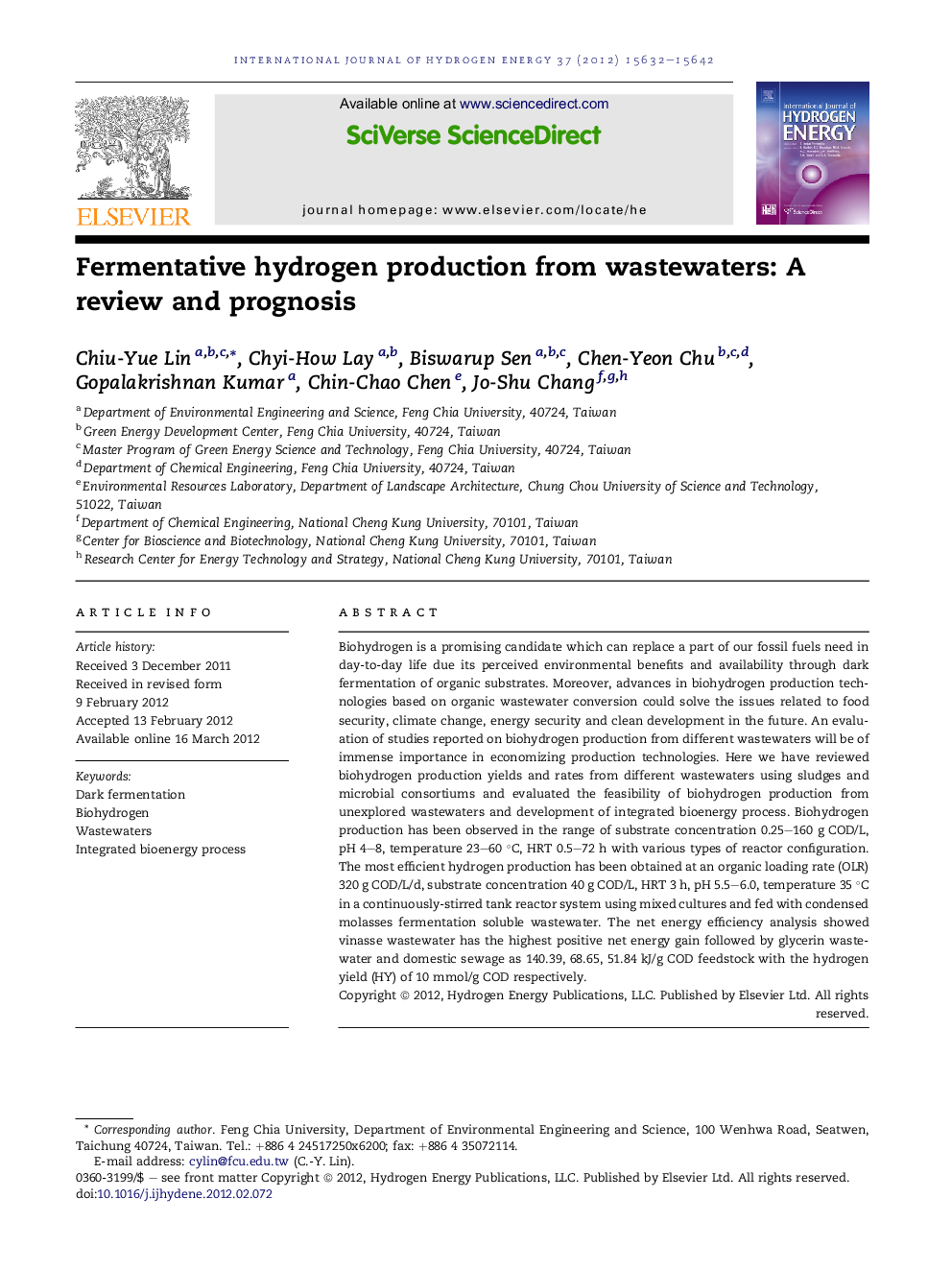| Article ID | Journal | Published Year | Pages | File Type |
|---|---|---|---|---|
| 1274575 | International Journal of Hydrogen Energy | 2012 | 11 Pages |
Biohydrogen is a promising candidate which can replace a part of our fossil fuels need in day-to-day life due its perceived environmental benefits and availability through dark fermentation of organic substrates. Moreover, advances in biohydrogen production technologies based on organic wastewater conversion could solve the issues related to food security, climate change, energy security and clean development in the future. An evaluation of studies reported on biohydrogen production from different wastewaters will be of immense importance in economizing production technologies. Here we have reviewed biohydrogen production yields and rates from different wastewaters using sludges and microbial consortiums and evaluated the feasibility of biohydrogen production from unexplored wastewaters and development of integrated bioenergy process. Biohydrogen production has been observed in the range of substrate concentration 0.25–160 g COD/L, pH 4–8, temperature 23–60 °C, HRT 0.5–72 h with various types of reactor configuration. The most efficient hydrogen production has been obtained at an organic loading rate (OLR) 320 g COD/L/d, substrate concentration 40 g COD/L, HRT 3 h, pH 5.5–6.0, temperature 35 °C in a continuously-stirred tank reactor system using mixed cultures and fed with condensed molasses fermentation soluble wastewater. The net energy efficiency analysis showed vinasse wastewater has the highest positive net energy gain followed by glycerin wastewater and domestic sewage as 140.39, 68.65, 51.84 kJ/g COD feedstock with the hydrogen yield (HY) of 10 mmol/g COD respectively.
► Biohydrogen production from different wastewaters has been reviewed. ► Maximum HPR from sugary wastewater fed in CSTR at high OLR. ► Mixed cultures show high H2 production efficiency. ► Highest positive net energy gain from vinasse dark fermentation.
